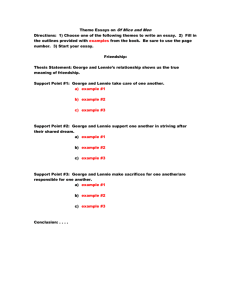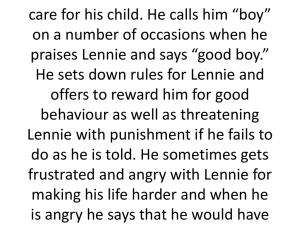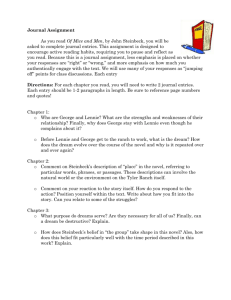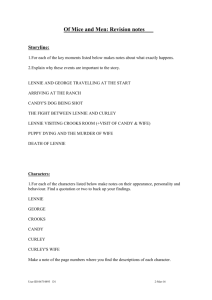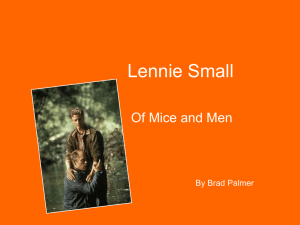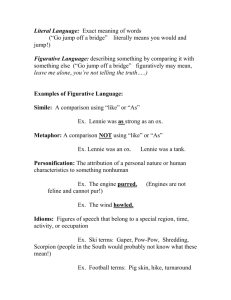Thomas Foster Project - Mercer Island School District
advertisement
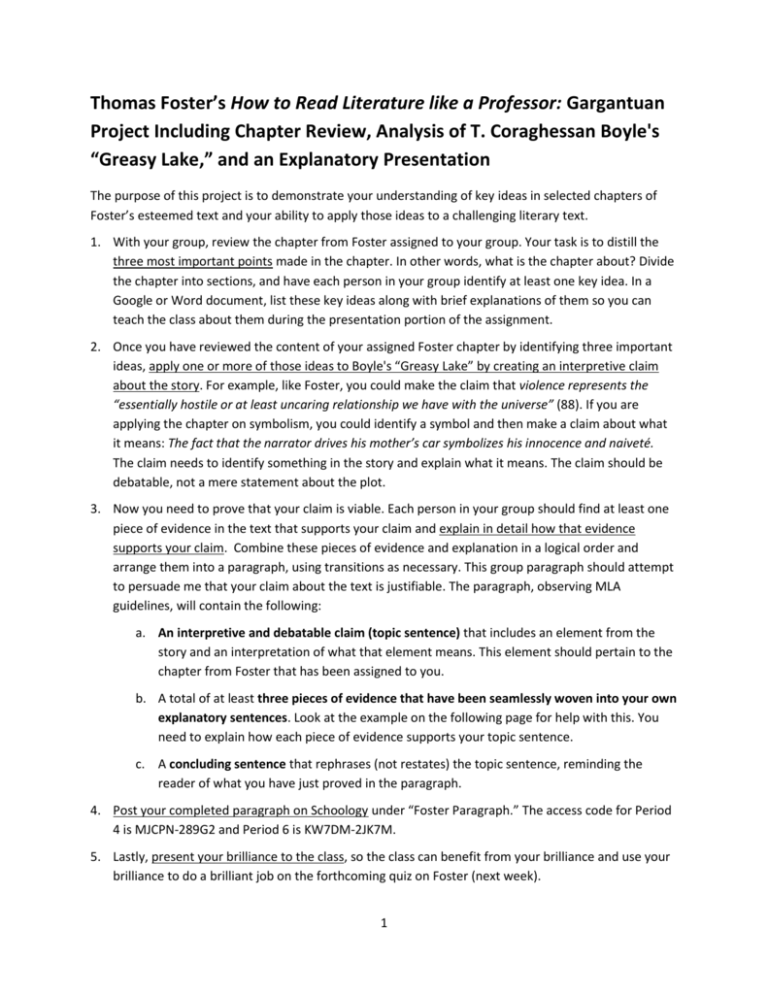
Thomas Foster’s How to Read Literature like a Professor: Gargantuan Project Including Chapter Review, Analysis of T. Coraghessan Boyle's “Greasy Lake,” and an Explanatory Presentation The purpose of this project is to demonstrate your understanding of key ideas in selected chapters of Foster’s esteemed text and your ability to apply those ideas to a challenging literary text. 1. With your group, review the chapter from Foster assigned to your group. Your task is to distill the three most important points made in the chapter. In other words, what is the chapter about? Divide the chapter into sections, and have each person in your group identify at least one key idea. In a Google or Word document, list these key ideas along with brief explanations of them so you can teach the class about them during the presentation portion of the assignment. 2. Once you have reviewed the content of your assigned Foster chapter by identifying three important ideas, apply one or more of those ideas to Boyle's “Greasy Lake” by creating an interpretive claim about the story. For example, like Foster, you could make the claim that violence represents the “essentially hostile or at least uncaring relationship we have with the universe” (88). If you are applying the chapter on symbolism, you could identify a symbol and then make a claim about what it means: The fact that the narrator drives his mother’s car symbolizes his innocence and naiveté. The claim needs to identify something in the story and explain what it means. The claim should be debatable, not a mere statement about the plot. 3. Now you need to prove that your claim is viable. Each person in your group should find at least one piece of evidence in the text that supports your claim and explain in detail how that evidence supports your claim. Combine these pieces of evidence and explanation in a logical order and arrange them into a paragraph, using transitions as necessary. This group paragraph should attempt to persuade me that your claim about the text is justifiable. The paragraph, observing MLA guidelines, will contain the following: a. An interpretive and debatable claim (topic sentence) that includes an element from the story and an interpretation of what that element means. This element should pertain to the chapter from Foster that has been assigned to you. b. A total of at least three pieces of evidence that have been seamlessly woven into your own explanatory sentences. Look at the example on the following page for help with this. You need to explain how each piece of evidence supports your topic sentence. c. A concluding sentence that rephrases (not restates) the topic sentence, reminding the reader of what you have just proved in the paragraph. 4. Post your completed paragraph on Schoology under “Foster Paragraph.” The access code for Period 4 is MJCPN-289G2 and Period 6 is KW7DM-2JK7M. 5. Lastly, present your brilliance to the class, so the class can benefit from your brilliance and use your brilliance to do a brilliant job on the forthcoming quiz on Foster (next week). 1 Group Chapter Assignments: 1. 2. 3. 4. 5. 6. 7. 8. 9. Quest Communion Vampires Allusion (mostly “Now, Where Have I Seen Her Before?” but you can also draw from the chapters on Shakespeare, the Bible, and mythology if necessary) Violence Symbol Baptism Geography Sex (both “It’s All about Sex…” and “…Except Sex”) Sample Paragraph Of Mice and Men reflects a society in which having dreams is considered a weakness. An instance of this attitude occurs when Curley’s wife uses the word “weak” in reference to Lennie, Crooks, and Candy while they are discussing the possibility of the dream farm: “They left all the weak ones here” (76). The juxtaposition of the use of the word “weak” with the discussion of the farm links dreaming of the farm with the concept of weakness. While it may seem surprising that Curley’s wife attributes weakness to Lennie, whose unusual physical strength is highlighted throughout the novel, only the mentally feeble Lennie speaks constantly and devotedly about his dream of having rabbits at his and George’s future farm. George’s dismissal of the dream as a foolish fantasy, a weakness, is implicit in his frequently telling Lennie, “To hell with the rabbits” (4, 10). George even goes so far as to mock Lennie’s dream, sarcastically remarking to Lennie that they will have “millions” of “red and blue and green rabbits” (16). This attitude makes George similar to the other people in the novel who see such dreams as a weakness. 2

